 W
WFrancis Beaumont was a dramatist in the English Renaissance theatre, most famous for his collaborations with John Fletcher.
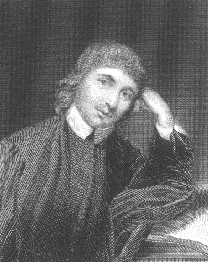 W
WWilliam Cartwright was an English poet, dramatist and churchman.
 W
WGeorge Chapman was an English dramatist, translator and poet. He was a classical scholar whose work shows the influence of Stoicism. Chapman has been speculated to be the Rival Poet of Shakespeare's sonnets by William Minto, and as an anticipator of the metaphysical poets of the 17th century. Chapman is best remembered for his translations of Homer's Iliad and Odyssey, and the Homeric Batrachomyomachia.
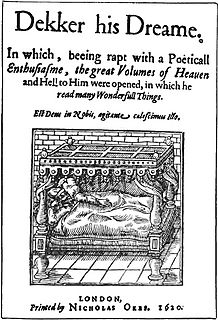 W
WThomas Dekker was an English Elizabethan dramatist and pamphleteer, a versatile and prolific writer, whose career spanned several decades and brought him into contact with many of the period's most famous dramatists.
 W
WThomas Sackville, 1st Earl of Dorset was an English statesman, poet, and dramatist. He was the son of Richard Sackville, a cousin to Anne Boleyn. He was a Member of Parliament and Lord High Treasurer.
 W
WRichard Edes (1555–1604) was an English churchman. He became Dean of Worcester, and was nominated one of the translators for the Authorised King James Version, in the Second Oxford Company, but died in the earliest stages of the project.
 W
WRichard Edwardes was an English poet, playwright, and composer; he was made a Gentleman of the Chapel Royal, and was master of the singing boys. He was known for his comedies and interludes. He was also rumoured to be an illegitimate son of Henry VIII.
 W
WNathan Field was an English dramatist. He was also an actor.
 W
WJohn Fletcher (1579–1625) was a Jacobean playwright. Following William Shakespeare as house playwright for the King's Men, he was among the most prolific and influential dramatists of his day; during his lifetime and in the early Restoration, his fame rivalled Shakespeare's. He collaborated on writing plays with Francis Beaumont, and also with Shakespeare on two plays.
 W
WJohn Ford was an English playwright and poet of the Jacobean and Caroline eras born in Ilsington in Devon, England.
 W
WWilliam Gager (1555–1622) was an English jurist, now known for his Latin dramas.
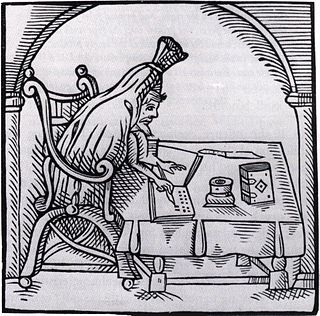 W
WRobert Greene (1558–1592) was an English author popular in his day, and now best known for a posthumous pamphlet attributed to him, Greene's Groats-Worth of Witte, bought with a million of Repentance, widely believed to contain an attack on William Shakespeare. Robert Greene was a popular Elizabethan dramatist and pamphleteer known for his negative critiques of his colleagues. He is said to have been born in Norwich. He attended Cambridge, receiving a BA in 1580, and an M.A. in 1583 before moving to London, where he arguably became the first professional author in England. Greene was prolific and published in many genres including romances, plays and autobiography.
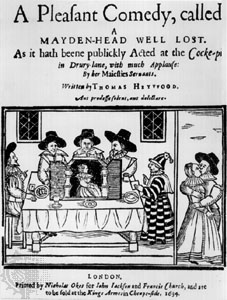 W
WThomas Heywood was an English playwright, actor, and author. His main contributions were to late Elizabethan and early Jacobean theatre. He is best known for his masterpiece A Woman Killed with Kindness, a domestic tragedy, which was first performed in 1603 at the Rose Theatre by the Worcester's Men company. He was a prolific writer, claiming to have had "an entire hand or at least a maine finger in two hundred and twenty plays", although only a fraction of his work has survived.
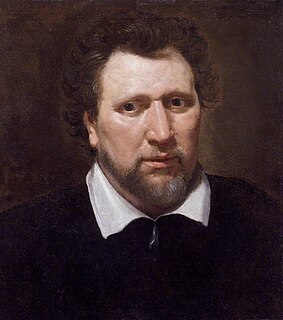 W
WBenjamin Jonson was an English playwright and poet, whose artistry exerted a lasting influence upon English poetry and stage comedy. He popularised the comedy of humours. He is best known for the satirical plays Every Man in His Humour (1598), Volpone, or The Fox, The Alchemist (1610) and Bartholomew Fair (1614) and for his lyric and epigrammatic poetry. "He is generally regarded as the second most important English dramatist, after William Shakespeare, during the reign of James I."
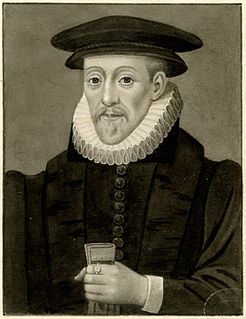 W
WThomas Legge was an English playwright, prominently known for his play Richardus Tertius, which is considered to be the first history play written in England.
 W
WJohn Lyly was an English writer, poet, dramatist, and courtier, best known during his lifetime for his books Euphues: The Anatomy of Wit (1578) and Euphues and His England (1580), and perhaps best remembered now for his plays. Lyly's mannered literary style, originating in his first books, is known as euphuism.
 W
WChristopher Marlowe, also known as Kit Marlowe, was an English playwright, poet and translator of the Elizabethan era. Modern scholars count Marlowe among the most famous of the Elizabethan playwrights and based upon the "many imitations" of his play Tamburlaine they consider him to have been the foremost dramatist in London in the years just before his mysterious early death. Some scholars also believe that he greatly influenced William Shakespeare, who was baptised in the same year as Marlowe and later became the pre-eminent Elizabethan playwright. Marlowe was the first to achieve critical notoriety for his use of blank verse, which became the standard for the era. His plays are distinguished by their overreaching protagonists. Themes found within Marlowe's literary works have been noted as humanistic with realistic emotions, which some scholars find difficult to reconcile with Marlowe's "anti-intellectualism" and his catering to the taste of his Elizabethan audiences for generous displays of extreme physical violence, cruelty, and bloodshed.
 W
WJohn Marston was an English poet, playwright and satirist during the late Elizabethan and early Jacobean periods. His career as a writer lasted only a decade. His work is remembered for its energetic and often obscure style, its contributions to the development of a distinctively Jacobean style in poetry, and its idiosyncratic vocabulary.
 W
WPhilip Massinger was an English dramatist. His finely plotted plays, including A New Way to Pay Old Debts, The City Madam and The Roman Actor, are noted for their satire and realism, and their political and social themes.
 W
WThomas Middleton was an English Jacobean playwright and poet. He, along with John Fletcher and Ben Jonson, was among the most successful and prolific of the playwrights at work in the Jacobean period. Middleton was among the few to achieve equal success in comedy and tragedy. He was also a prolific writer of masques and pageants.
 W
WThomas Nashe [also Nash] was an Elizabethan playwright, poet, satirist and a significant pamphleteer. He is known for his novel The Unfortunate Traveller, his pamphlets including Pierce Penniless, and his numerous defences of the Church of England.
 W
WWilliam Shakespeare was an English playwright, poet, and actor, widely regarded as the greatest writer in the English language and the world's greatest dramatist. He is often called England's national poet and the "Bard of Avon". His extant works, including collaborations, consist of some 39 plays, 154 sonnets, two long narrative poems, and a few other verses, some of uncertain authorship. His plays have been translated into every major living language and are performed more often than those of any other playwright. They also continue to be studied and reinterpreted.
 W
WJames Shirley was an English dramatist.
 W
WThe University Wits is a phrase used to name a group of late 16th-century English playwrights and pamphleteers who were educated at the universities and who became popular secular writers. Prominent members of this group were Christopher Marlowe, Robert Greene, and Thomas Nashe from Cambridge, and John Lyly, Thomas Lodge, and George Peele from Oxford. Thomas Kyd is also sometimes included in the group, though he is not believed to have studied at university.